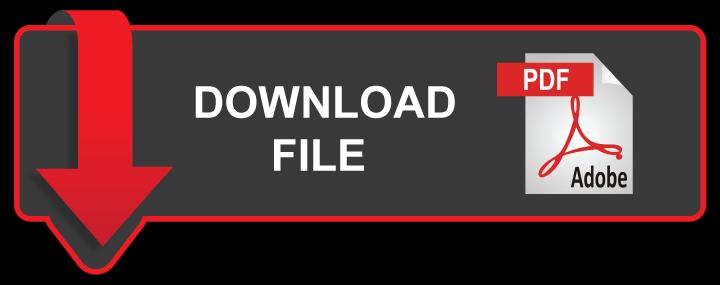
11 minute read
INTRODUCTION
This repair manual provides the technical information needed to properly service the New Holland TC35, TC35D, TC40, TC40D, TC45 and TC45D tractors. Use this manual in conjunction with the operator’s manual for complete operation, adjustment, and maintenance information.
On New Holland equipment, left and right are determined by standing behind the unit, looking in the direction of travel.
Advertisement
Precautionary Statements
Personal Safety
Throughout this manual and on machine decals, you will find precautionary statements (“CAUTION”, “WARNING”, and “DANGER”) followed by specific instructions. These precautions are intended for the personal safety of you and those working with you. Please take the time to read them.
Caution
The word “CAUTION” is used where a safe behavioral practice according to operating and maintenance instructions and common safety practices will protect the operator and others from accident involvement.
Danger
The word “DANGER” denotes a forbidden practice in connection with a serious hazard.
Warning
The word “WARNING” denotes a potential or hidden hazard which has a potential for serious injury. It is used to warn operators and others to exercise every appropriate means to avoid a surprise involvement with machinery.
FAILURE TO FOLLOW THE “CAUTION”, “WARNING”, AND “DANGER” INSTRUCTIONS MAY RESULT IN SERIOUS BODILY INJURY OR DEATH.
Machine Safety
Theprecautionary statement(“IMPORTANT”)isfollowedby specific instructions.This statementisintendedfor machine safety.
IMPORTANT: The word “IMPORTANT” is used to inform the reader of something he needs to know to prevent minor machine damage if a certain procedure is not followed.
Technical Information
Hardware
Approximately 90% of the torque applied during The TC35, TC35D, TC40, TC40D, TC45 and TC45D tractors have been built using metric hardware.
General
NOTE: Be sure to use the hardware specified when using tapped holes, as trying to install a metric bolt in an inch thread, or an inch bolt in a metric thread, will damage the thread.
Certain hardware must be tightened to specific torque specifications. If specific torque specifications are not noted, tighten the hardware to the standard torque chart specification listed in this manual.
Plating
Hardware used on New Holland balers is plated with zinc chromate (gold color). Gold colored hardware has different torquing requirements from unplated or zinc plated (silver color) hardware because of the difference in the coefficient of friction of the plating material. The torque charts in this manual list the correct specifications for gold, silver, and unplated bolts.
Nut Tightening
Whenever possible, the nut should be tightened, not the head of the bolt. When tightening using the bolt head, the clamp load can be lost because some of the torque applied twists the bolt instead of tensioning (stretching) it. The tension on the bolt is what holds the joint together.
assembly goes to overcoming friction between the parts. The other 10% is used to tension (stretch) the bolt. After assembly, the frictional forces disappear, which is the basis for the saying “If it does not fail during assembly, it will not fail in service.” The bolt may later fail due to other factors, but not from being over tightened.
Locknuts
Most locknuts are coated with a special lubricant that is dry to the touch. Anytime a locknut is used, a lower than normal torque is required. Refer to the torque charts in this manual for specific values.
JAM NUTS
When using a jam nut to lock a regular nut, the jam nut should be installed first and tightened to one half the recommended torque, then held in place while installing a regular nut to the recommended torque.
Thread Lubrication
The addition of antiseize compound, Molykote, oil, graphite, or any other lubricant to a bolt decreases the friction between it and a nut. This makes it necessary to reduce the recommended torque to prevent over tensioning of the bolt. When using the torque charts in this manual, decrease the value by 20% whenever a lubricant is used.
Safety Precautions
A careful operator is the best operator. Most accidents can be avoided by observing certain precautions. To help prevent accidents, read and take the following precautions before operating this tractor. Equipment should be operated only by those who are responsible and instructed to do so.
The Tractor
1. Read the Operator’s Manual carefully before using the tractor. Lack of operating knowledge can lead to accidents.
2. Use an approved roll bar and seat belt for safe operation. Overturning a tractor without a roll bar can result in death or injury. If your tractor is not equipped with a roll bar and seat belt, see your New Holland Dealer.
3. Always use the seat belt. The only instance when the seat belt should not be used is if the roll bar has been removed from the tractor or folding ROPS is in down position.
4. If a front end loader is to be installed, always use a FOPS (Falling Object Protective Structure) canopy to avoid injury from falling objects.
5. Use the handholds and step plates when getting on and off the tractor to prevent falls. Keep steps and platform cleared of mud and debris.
6. Do not permit anyone but the operator to ride on the tractor.Thereis nosafe placefor extrariders.
7. Keep all safety decals clean of dirt and grime, and replace all missing, illegible, or damaged safety decals. See the list of decals in the Decal section of this manual.
Servicing The Tractor
1. The cooling system operates under pressure which is controlled by the radiator cap. It is dangerous to remove the cap while the system is hot. Always turn the cap slowly to the first stop and allow pressure to escape before removing the cap entirely.
2. Keep any type of open flame away from the tractor and do not smoke while refueling. Wait for the engine to cool before refueling.
3. Keep the tractor and equipment, particularly brakesandsteering,maintainedinareliableand satisfactory condition to ensure your safety and comply with legal requirements.
4. Keep open flame or cold weather starting aids away from the battery to prevent fires or explosions. Use jumper cables according to instructions to prevent sparks which could cause explosion.
5. Stop the engine before performing any service on the tractor.
6. Escaping hydraulic/diesel fluid under pressure can penetrate the skin causing serious injury. If fluid is injected into the skin, obtain medical attention immediately or gangrene may result.
• DO NOT use your hand to check for leaks. Use a piece of cardboard or paper to search for leaks.
• Stop the engine and relieve pressure before connecting or disconnecting lines.
• Tighten all connections before starting the engine or pressurizing lines.
7. Do not modify or permit anyone else to modify or alter this tractor or any of its components or functions without first consulting a New Holland Dealer.
8. The fuel oil in the injection system is under high pressure and can penetrate the skin. Unqualified persons should not remove or attempt to adjust a pump, injector, nozzle, or any other part of the fuel injection system. Failure to follow these instructions can result in serious injury.
9. Continuous long-term contact with used engine oil may cause skin cancer. Avoid prolonged contact with used engine oil. Wash skin promptly with soap and water.
10. Some components of your tractor, such as gaskets and friction surfaces (brake linings, clutch linings, etc.) may contain asbestos. Breathing asbestos dust is dangerous to your health. You are advised to have any maintenance or repair on such components carried out by an authorized New Holland Dealer. However, if service operations are to be undertaken on parts that contain asbestos, the essential precautions listed below must be observed:
• Work out of doors or in a well ventilated area.
• Dust found on the tractor or produced during work on the tractor should be removed by extraction, not by blowing.
• Dust waste should be dampened, placed in a sealed container, and marked to ensure safe disposal.
• If any cutting, drilling, etc. is attempted on materials containing asbestos, the item should be dampened and only hand tools or low speed power tools used.
Operating The Tractor
1. Before starting the tractor, apply the parking brake, place the PTO lever in the “OFF” position, the lift control lever in the down position, the remote control valve levers in the neutral position, and the transmission in neutral.
2. Always sit in the tractor seat when starting the engine or operating controls. Do not start the engine or operate controls while standing beside the tractor.
3. Do not bypass the neutral start switches. Consult your New Holland Dealer if your neutral start controls malfunction. Use jumper cables only in the recommended manner. Improper use can result in tractor runaway.
4. Avoid accidental contact with the gear shift lever while the engine is running, as this can cause unexpected tractor movement.
5. Before getting off the tractor, disengage the PTO, turn the engine off, and apply the parking brake. Never get off the tractor while it is in motion.
6. Do not park the tractor on a steep incline.
7. Do not operate the tractor engine in an enclosed building without adequate ventilation. Exhaust fumes can cause death or illness.
8. If the power steering or engine ceases operating, stop the tractor immediately.
9. Pull only from the drawbar or the lower link drawbar in the down position. Use only a drawbar pin that locks in place. Pulling from the tractor rear axle or any point above the axle may cause the tractor to upset.
10. 1If the front end of the tractor tends to rise when heavy implements are attached to the threepoint hitch, install front end or front wheel weights. Do not operate the tractor with a light front end.
11. Always set the hydraulic selector lever in position control when attaching or transporting equipment. Ensure hydraulic couplers are properly mounted and will disconnect safely in case of accidental detachment of implement.
12. Do not leave equipment in the raised position.
13. Use the flasher/turn signal lights and SMV signs when traveling on public roads both day and night (unless prohibited by law).
14. When operating at night, adjust lights to prevent blinding oncoming drivers.
Driving The Tractor
1. Watch where you are going, especially at row ends, on roads, around trees and low hanging obstacles.
2. To avoid upsets, drive the tractor with care and at a safe speed. Use extra caution when operating over rough ground, when crossing ditches or slopes, and when turning corners.
3. To provide two-wheel braking, lock tractor brake pedals together when transporting on roads.
4. Do not coast or free wheel down hills. Use the same gear when going downhill as is used when going uphill.
5. Any towed vehicle with a total weight exceeding that of the towing tractor should be equipped with brakes for safe operation.
6. If the tractor becomes stuck or the tires become frozen to the ground, back up the tractor to prevent upset.
7. Always check overhead clearance, especially when transporting the tractor.
8. When operating at night, adjust lights to prevent blinding oncoming drivers.
Operating The Pto
1. When operating PTO driven equipment, shut off the engine and wait until the PTO stops before getting off the tractor and disconnecting the equipment.
2. Do not wear loose clothing when operating the powertake-offor whennear rotatingequipment.
3. When operating stationary PTO driven equipment, always place all gear shift levers in neutral position.
Apply the tractor parking brake, and block the rear wheels front and back.
4. To avoid injury, do not clean, adjust, unclog, or service PTO driven equipment when the tractor engine is running.
5. Ensure the PTO master shield is installed at all times. Always replace the PTO shield cap when the PTO is not in use.
Diesel Fuel
1. UNDER NO CIRCUMSTANCES should gasoline, alcohol, or blended fuels be added to diesel fuel. These combinations can create an increased fire or explosive hazard. Such blends are more explosive than pure gasoline in a closed container such as a fuel tank. DO NOT USE THESE BLENDS.
2. Never remove the fuel cap or refuel with the engine running or hot.
3. Do not smoke while refueling or when standing near fuel.
4. Maintaincontrolof thefuelfillerpipenozzlewhen filling the tank.
5. Donot fillthefueltank to capacity.Allow room for expansion.
6. Wipe up spilled fuel immediately.
7. Always tighten the fuel tank cap securely.
8. If the original fuel tank cap is lost, replace it with a New Holland approved cap. A non-approved, proprietary cap may not be safe.
9. Keep equipment clean and properly maintained.
10. Do not drive equipment near open fires.
11. Never use fuel for cleaning purposes.
12. Arrange fuel purchases so that winter grade fuels are not held over and used in the spring.
SAFETY FRAME (ROPS)
Your New Holland tractor is equipped with a safety frame. It must be maintained in a serviceable condition. Be careful when driving through doorways or working in confined spaces with low headroom.
UNDERNO CIRCUMSTANCESshouldyou:
• modify, drill, or alter the safety frame in any way. Doing so may render you liable to legal prosecution.
• attempt to straighten or weld any part of the main frame or retaining brackets which have suffered damage. Doing so may weaken the structure and endanger your safety.
• secure any parts on the main frame or attach your safety frame with anything other than the special high tensile bolts and nuts specified.
• attach chains or ropes to the main frame for pulling purposes.
• take unnecessary risks even though your safety frame affords you the maximum protection possible.
WHEN YOU SEE THIS SYMBOL IT MEANS: ATTENTION! BECOME ALERT! YOUR SAFETY IS INVOLVED!
DECALS - TC35, TC40, TC45
If safety or instruction decals become damaged or illegible, new decals should be obtained from your New Holland Dealer and placed at their original positions.
Safety Decals
WARNING: PullOnly From Drawbar
PART NO: 86532904
LOCATION: PTO Shield
WARNING
WARNING WARNING
WARNING: Rotating Fan and Belts
PART NO: 86532907
LOCATION: Both Sides of Radiator
WARNING: Start Engine Only From Operator’s Seat
PART NO: 86532906
LOCATION: On the Starter Motor
WARNING WARNING
WARNING: ToJumpStart
PART NO: 86532905
LOCATION: Front of Coolant Overflow Tank
DANGER: ROPS
PART NO: 86543805
LOCATION: Top under side of ROPS
WARNING: Before Starting and Operating
PART NO: 86401125



LOCATION: Left Console Panel
INSTRUCTION DECALS - TC35, TC40, TC45
Front-WheelDrive
Control Lever
PART NO: 86400177
LOCATION: Left Fender
Position Control Lever
PART NO: 86567896
LOCATION:Right-Hand Quadrant
Operating RemoteControl
Valve-Single Spool
PART NO: 86567895
LOCATION: Right-Hand Fender
PTO Engagement
PARTNO:86567890
LOCATION: Left-Hand Seat Pan Range SelectorLever (Manual)
PART NO: 86567891
LOCATION: Left fender
Hyd. Manifold Operation (See Operator’s Manual)
PART NO: 86532914
LOCATION: Right-Hand Side of Hyd. Manifold/Air Filter Cap
Starter Switch
PART NO: 86400175
LOCATION: Starter Switch, Right Side of Instrument Panel
Engine Oil



PART NO: 86532916
LOCATION:EngineOil Filler Cap
Coupler-Extending
PARTNO:86532920
Coupler Retracting
PARTNO:86532919
Main Shift Lever
PARTNO:86567892
LOCATION:Toprightofdash
Forward-ReverseShuttle
PART NO: 86567887
LOCATION:TopLeft of Dash
Coupler-Extending
PART NO: 86532921
Coupler Retracting
PARTNO:86532922
Power Steering Fluid
PART NO: 86532903
LOCATION:TopofP.S. Reservoir
OperatingRemote Control ValveDouble Spool
PART NO: 86532911
LOCATION: Cover of 2-Spool Remote Valve
Lubrication and MaintenanceIntervals
PART NO: 86400357
LOCATION: Inside of Hood
Flow Control Valve
PARTNO:86400295
LOCATION: Top of Flow Control Knob
Parking Brake
PART NO: 86521672
LOCATION:RightFront
Deck Platform
Differential Lock
PARTNO:86532901
LOCATION:RightRear
Deck Platform
Air Cleaner Maintenance
PART NO: 86400356





LOCATION: Air Cleaner Canister
Throttle
PART NO: FONN9N848BA
LOCATION: Top Right Dash
Turn Signal
PART NO: 86400176
LOCATION: Top Left Dash
New Holland Leaf
PARTNO:86516991
LOCATION:HeadLight Bezel
ROPS Certification
PARTNO:86401027
LOCATION:Inner RightUpright
Red Reflective Tape
PARTNO:86400366
LOCATION: Back RearFender
DECALS - TC35D, TC40D, TC45D
If safety or instruction decals become damaged or illegible, new decals should be obtained from your New Holland Dealer and placed at their original positions.
Safety Decals
WARNING
WARNING: PullOnly FromDrawbar
PART NO: 86532904
LOCATION: PTO Shield
WARNING
WARNING: ToJumpStart
PART NO: 86532905
LOCATION: Coolant overflow tank
WARNING: BeforeStarting and Operating
PART NO: 86532909
WARNING: Rotating Fan and Belts
PART NO: 86532907
LOCATION: Both sides of Radiator Shroud
LOCATION: Inside Left-Hand Fender
WARNING: Front-Wheel Drive Usage (Super Steer only)
PART NO: 86532902
LOCATION: Left Pod Top
DANGER: ROPS
PART NO: 86543805
LOCATION: Top under side of ROPS
WARNING: Lock Park Brake
PART NO: 86576391
LOCATION: Right Side Dash Left of handle throttle
WARNING: StartEngineOnly From
Operator’s Seat





PART NO: 86579295
LOCATION: On Starter Motor
SECTION 00 - GENERAL INFORMATION
INSTRUCTION DECALS - TC35D, TC40D, TC45D
RangeSelector Lever (Hydrostatic)
PART NO:
86567894
PositionControl Lever
PART NO:
86567896
OperatingRemote Control
Valve-Single Spool
PTO Engagement
PARTNO:86567890
LOCATION: Left-Hand
Pod Top
Front-Wheel Drive Control Lever
LOCATION: Left-Hand POD Top 00-13
LOCATION: Right-Hand POD Top
PART NO:
86567895
LOCATION: Right-Hand POD Top
Left-Hand
PTOControl Lever (Rear)
PTOControl Lever (Mid)

